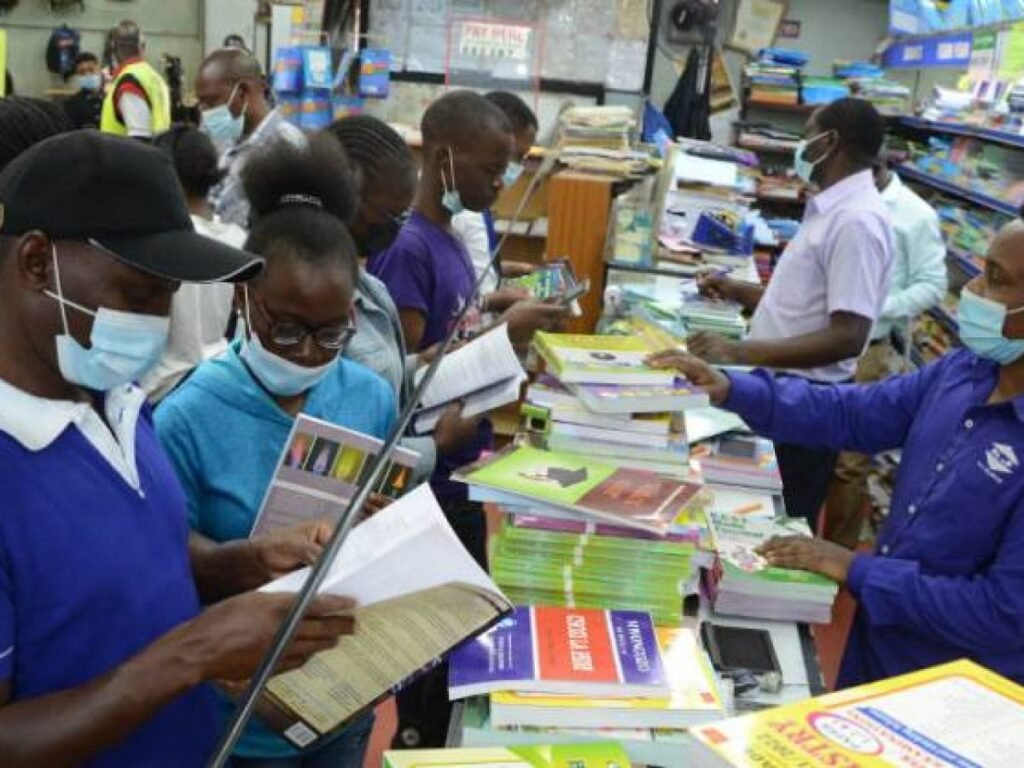General News
Gov’t Recognizes Role Of Church In Promoting CBC

The Ministry of Education acknowledges the role played by the church and religious institutions in articulating reforms, reviews and stewarding of the new Competency Based Curriculum (CBC) in the country.
Speaking during the 64th general assembly of the National Council for Churches of Kenya (NCCK) which was held in Limuru from August 23 to 25, Education Principal Secretary Prof Fatuma Chege who is in charge of CBC and its reforms said that the church has continued to play a critical role in promoting social values and morals in curriculum reviews.
“The Ministry of Education acknowledges that the church has continued to play a pivotal role in establishing and managing of schools and training institutions across the country by building, financing and recruiting teachers for curriculum implementation,” said PS.
The PS added that the partnership between the state and church is clearly demonstrated in the provision of suitable legal and policy environment for nurturing ethics and moral values among youth, as the church role is well articulated in the Basic Education Act (2013) Number 14.
The religious organisations have been more proactive in initiating value-based learning through non-formal programmes, in order to equip learners with values for character formation and holistic development despite the depicted individualism in society.
“A sessional paper of 2019 on education in Kenya provides for the mentoring, molding and nurturing of national values and their integration into the curriculum,” PS highlighted.
With the recent cases of indiscipline, prevalence of drug abuse in schools, burning of schools, radicalisation, teenage pregnancies and general learner disobedience to school rules calls for the need to enhance, regulate and provide chaplaincy services in basic education institutions, reiterated PS.
“The process of developing a chaplaincy guideline is ongoing as the Ministry of Education has partnered with NCCK to ensure it’s executed,” She added.
She affirmed this by outlining 8 core values of the CBC, which are love, peace, unity, respect, responsibility, respect, patriotism, integrity and social justice.
The Ministry of Education aims to give religious organizations an opportunity to develop learners’ knowledge and practice their faith in order to grow as mature, morally upright and responsible members of the society.
“Religious institutions, including NCCK will continue to be involved in the formulation, implementation and review of the curriculum,” said the PS.
General News
IMF Criticizes Kenya’s Fuel Subsidy Re-Introduction, Warns of Budget Distortion

The International Monetary Fund (IMF) has criticized Kenya for re-implementing the fuel subsidy scheme, expressing concerns that the lack of funds to pay oil marketers could distort the budget.
Despite a previous commitment by President William Ruto in 2022 not to subsidize pump prices, the government reintroduced the subsidy, preventing petrol and diesel prices from reaching higher levels in October 2023.
The IMF argues that the subsidy was applied without available funds, as the Treasury has yet to pay oil marketers at least Ksh9 billion ($55.6 million) accumulated from the previous year. President Ruto’s decision to reinstate subsidies goes against conditions set by the IMF for accessing loans.
Petrol and diesel prices, which were Ksh217.36 ($1.34) and Ksh205.47 ($1.27) respectively in Nairobi in October 2023, remained lower than the potential Ksh220.43 ($1.36) and Ksh217.11 ($1.34) due to the subsidy. However, the IMF disapproves of the decision, emphasizing that the removal of the subsidy was a key condition for a 38-month budget support scheme.
The IMF criticizes the prolonged process of forming a taskforce and delays in implementing decisions regarding fuel pricing.
The removal of the subsidy in May of the previous year led to record-high pump prices, crossing the Ksh200-mark later in the year due to a combination of subsidy removal and a VAT increase to 16 percent.
Kenya’s administration, faced with rising fuel costs, chose to reinstate the subsidy, prompting the IMF to raise alarms over the lack of budgeted funds and potential distortions in the country’s financial plans.
The ongoing disagreement highlights the challenges and consequences associated with balancing domestic economic policies and meeting international financial commitments
General News
Parents in Meru County Turn to Second-Hand Books Amid Economic Hardships

As the back-to-school rush season unfolds in Meru County, a growing number of parents are making a strategic choice to purchase second-hand books for their children.
This decision stems from the challenging economic conditions that have prompted families to seek ways to cut costs.
Among these parents is Ms. Prisca Gakii, who revealed that opting for second-hand books allows her to save money, which can then be allocated towards essential expenses like school fees.
She highlighted a practical advantage for Form-One students, emphasizing that using older books can protect them from potential theft, as new books often become targets for less scrupulous classmates.

Ms. Gakii pointed out a notable price difference, citing an example of a new Oxford dictionary priced at almost Sh1,900, compared to a used one available for Sh1400.
She justified her preference for the older but more affordable option, emphasizing that they contain the same content.
Janet Wamuyu, a second-hand books trader, shed light on the lucrative nature of their business during the opening of the first term, which coincides with the peak season.
As learners transition to new grades or classes, there is a heightened demand for various books, including dictionaries, Kamusi, and Golden Bells.

Wamuyu explained that this period, especially when Form-One students are joining school, facilitates easy acquisition of books for new stock.
The trading process involves exchanging books for the next grade or class at a lower rate, providing an economical alternative for parents instead of purchasing an entirely new set of books.
She further noted that their source of new stock comes from parents whose children have completed their studies and no longer require the books.
Despite the success during the peak season, Wamuyu acknowledged the challenges faced during other times of the year when only a few revision books are in demand, highlighting the cyclical nature of the business in Meru County.











